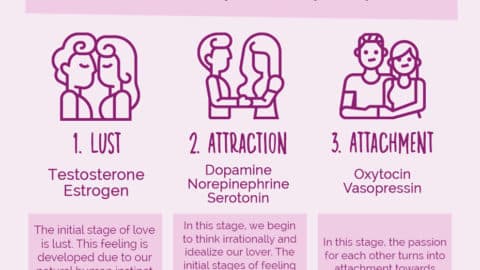Researchers from the University of Michigan have made a groundbreaking study that revealed shocking effects in terms of how bipolar disorder affects human lifespan.
The findings, published in the Journal of Psychiatry Research, reveal that people with bipolar disorder have a higher risk of dying prematurely than they have on their own.
This risk outweighs smoking. Let’s go into finer details of the study and look at the components and similarities between BD and other factors responsible for shorter lives.
Understanding the Dangers: How Bipolar Disorder Increases the Chances of an Early Death
This research showed one disturbing finding that, an individual with bipolar disorder is four to six times more likely to die young than one without this mental health condition.
Two major factors contribute to these early deaths according to experts are health disparities and way of life.
The study further indicates that paying attention to health issues as well as lifestyle choices can lead to significant reductions in mortality rates.
However, death due to bipolar disorder is not simple but complicated by different factors that work together to cause premature deaths or shortened lives.
The Complexity: Bipolar Disorder vs Other Mortality Factors
The study went beyond just the disorder in order to compare its longevity with those affected by such things as smoking, hypertension, combinations among others.
It aimed at disaggregating the impact of each factor on mortality rates. Here is what they found:
1) Bipolar Disorder Alone
Those individuals grappling with only bipolar disorder were more susceptible to early death.
Although this has been known as a risk factor for dying; it is linked with other aspects according to this research.
2) Smoking and Bipolar Disorder
No wonder people who smoke and are also bipolar were found more prone to premature death compared with non-smokers. As far as longevity is concerned, it shows how two harmful habits accumulate.
3) Non-Smokers with Bipolar Disorder
Interestingly, people suffering from bipolar disease without smoking were less likely to die prematurely in contrast to their smoking counterparts. This stresses the critical role of lifestyle choices on lifespan.
4) Non-Bipolar Smokers
Smoking, a well-known factor causing reduced life expectancy, has come up again in this study.
Non-bipolar smokers were faced with a higher risk of premature death hence why it is important to address this dangerous habit.
5) Individuals without Psychiatric Disorders
Comparatively, such individuals are less likely to die before reaching old age as discovered by the research.
It is a standard measure for understanding the effects of psychiatric conditions on human longevity.
6) Hypertension: A Silent Threat
Hypertension was identified as one of the factors that negatively affect one’s lifespan whether an individual had bipolar disorder or not.
High blood pressure was found to be among the major causes of early deaths thus emphasizing its independent role on how long we live.
7) Bipolar Disorder and Hypertension Combination
The research also compared bipolar disorder in combination hypertension, showing that those individuals who had both conditions were more likely to die younger.
This implies that when psychiatric disorders and physical health conditions coincide there are cumulative effects involved.
Beyond Statistics: Implications for Mental Health and Well-being
In addition to comprehensively understanding the intricate relationship between bipolar disorder and longevity, the study raises vital questions about mental health awareness and interventions.
What’s more, the findings emphasize the importance of taking in consideration both illnesses of mind and related physical hazards for better wellbeing.
The Need for a Comprehensive Health Model
While grappling with these revelations from this landmark study, it becomes clear that bipolar disorder goes beyond its immediate implications on mental health.
It acts as a catalyst that forces us to focus on our broader lifestyle choices, highlighting the urgent need for holistic approaches to health that address both emotional and physical well-being.
The University of Michigan report calls for new ways of thinking about mental illness, suggesting that we should strive towards an all-round appreciation of the subject with interventions targeted at improving life span among those suffering from bipolar disorder.





